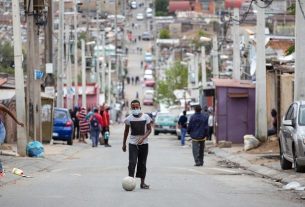Militant Islamist Violence: Over 150,000 Deaths in a Decade
Militant Islamist groups remain a dominant source of instability across five African conflict zones. In the past year alone, 22,307 deaths were attributed to such groups—a 60% increase from 2020–2022 averages. The Sahel accounted for nearly half (10,685) of these fatalities, while Somalia registered approximately one-third (7,289). Together with the Lake Chad Basin, these regions represent 99% of militant-related deaths. Battle-related fatalities reached 15,678 continent-wide—a 14% rise year-on-year. Islamist insurgents have expanded territorial control, with an estimated 950,000 km² of populated land now beyond state governance. (Africa Center for Strategic Studies)
Sudan Crisis
- Darfur: Parallel Government Rejected
Civil society organisations and opposition blocs condemned the RSF-backed Sudan Founding Alliance’s newly declared “founding government” as a threat to unity and a cover for past atrocities. The League of Arab States warned of destabilisation and state fragmentation. (Dabanga) - Khartoum: Minefields Discovered
Sudan’s National Mine Action Centre uncovered three anti-personnel minefields allegedly planted by RSF in Khartoum’s outskirts. The mines are challenging to detect and pose ongoing threats to civilian safety. (Dabanga)
South Sudan: Forced Military Conscription
Security forces in Juba are accused of detaining youths under anti-gang pretexts, later forcibly conscripting them into the army. Detainees unable to pay bribes were reportedly sent to conflict zones, sparking human rights concerns. (Radio Tamazuj)
Burkina Faso: Abducted Politician Released
Hermann Yameogo, prominent lawyer and son of Burkina Faso’s first president, was freed after being abducted by unidentified men days after criticising the junta. He reportedly underwent interrogation before release. (AFP)
Ghana: Troops Deployed After Student Killings
Three students were killed by gunmen in Bawku near the Burkina Faso border, prompting Ghana to deploy troops amid fears of cross-border militant violence and internal chieftaincy tensions. (AFP)
Cameroon: Opposition Leader Challenges Disqualification
Opposition figure Maurice Kamto has appealed his exclusion from the October presidential race. Elecam cited technicalities related to party nominations, while critics allege political bias. Kamto is considered the main challenger to President Paul Biya. (Africanews/AP)
Nigeria: Bandit Violence Escalates
- Troops Kill 45 Armed Criminals
Nigerian forces neutralised 45 bandits in Niger State following intelligence of an impending raid. The operation is part of broader efforts to reclaim control of lawless rural regions. (AFP) - Ransom Paid, 33 Hostages Executed
In Zamfara State, 33 kidnapped villagers were executed by bandits despite a $33,700 ransom. Three babies also died in captivity. Local officials confirmed the massacre. (AFP)
Kenya: Youth Exploited Amid Protests
As anti-government protests intensified, reports emerged of young men hired to attack demonstrators, while others protested against economic hardship. Violence left many injured, underscoring political manipulation of youth amid joblessness. (The Washington Post)
Technology: Kenya to Host First Pan-African AI Summit
Kenya will host the inaugural Africa AI Conference (AIPAC 2025) in Mombasa, from August 25–28. The summit will convene policymakers, researchers, and investors to shape AI strategies, ethical frameworks, and talent development across the continent. (The Standard)
Senegal: Government Launches Probe into Political Violence
Senegal’s judiciary will investigate political unrest from 2021–2024, during which at least 80 people died. Despite a controversial amnesty law, the probe aims to determine accountability, including for torture and killings. (Africanews/AP)
UN: Food Insecurity in Africa Worsens
Over 1 billion Africans—two-thirds of the population—cannot afford a healthy diet, according to a UN report. Africa remains the most food-insecure region globally, with over 20% undernourishment and rising hunger projected through 2030. (AFP)
Compiled for professional reference — July 29, 2025. Source: africacenter.org



